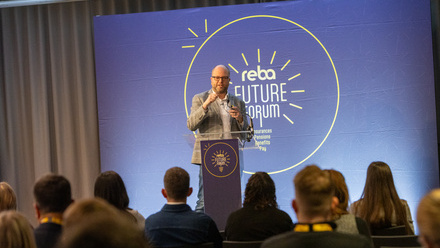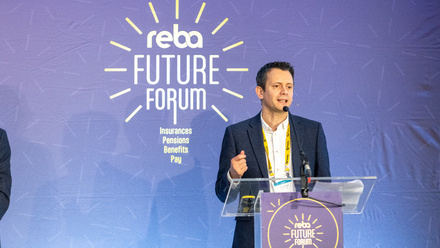Employee experience: Creating excellent EX in 2021

The rise of wellbeing
In the past few months we’ve seen that one of the key focus areas for business has been employee wellbeing; so it’s unsurprising to see a greater emphasis on wellbeing reflected in the 2021 UK Benefits and Trends survey results. 83% of businesses have seen an increased emphasis on wellbeing as a result of the Covid-19 impact, with 87% focusing specifically on wellbeing for home working. With 37% of companies expecting their health and wellbeing budget to increase as a result of Covid-19, it might be that we see a long-term shift towards proactive and preventative investment in health and wellbeing; when employers start to see the return-on-investment in wellbeing strategies this may catalyse change.
The detrimental impact of Covid-19 on mental health has been well-publicised; a survey by Mind showed that one in five adults who had no previous mental health problem now describe their mental health as ‘poor’ or ‘very poor’. There’s a clear opportunity for employers to provide support – particularly when one of the key drivers could be work-related stress. It stands to reason that happier employees have a more enjoyable experience at work (as well as a boost in performance); supporting mental health in the workplace should be a top priority for employers looking to improve overall experience.
Effective communication
Whilst the full extent of change is yet to be seen, it has been widely predicted that Covid-19 has accelerated significant, potentially permanent, change in working behaviour – with employers needing to communicate an array of changes when employees may be less accessible than ever before. This has been reflected in an increased focus in employee communications; 86% of businesses stated that communications are a higher priority since Covid-19. Communication is intrinsically linked to a good employee experience; you could have incredible employee benefits, but if employees aren’t aware they exist then they won’t utilise (or value) them.
Holistic approach to compensation
Over the past few years we’ve seen a seismic shift in how employee benefits are positioned, with companies focusing on highlighting the total package received rather than purely transactional statements.
This has been best demonstrated by a marked increase in the use of Total Reward Statements (TRS). The channel has evolved and changed – paper statements declining with digital methods increasing – but the interest in demonstrating total reward has remained high. Engagement, awareness and employee experience were given as the top three reasons for companies’ investment in TRS – it is clear there is a perceived correlation between employees understanding of their total reward package and their overall experience in the workplace. Humans value fairness; and feeling as though they receive fair compensation for their output is invariably a core component to building happy employees who have visibility and understand their full compensation – benefits and all.
However companies approach employee experience, two things are clear. First, employee experience is multi-faceted. There are many components to ensuring that employees have a good experience at work, and companies need to evaluate their approach against insights from employees. Secondly, there is no one-size-fits-all approach – even within the same organisation, companies often need to take an individualised strategy.
For more information on how companies are aligning their benefits strategy to create a good employee experience, download the Benefits and Trends survey.
This is a sponsored article from Aon.







